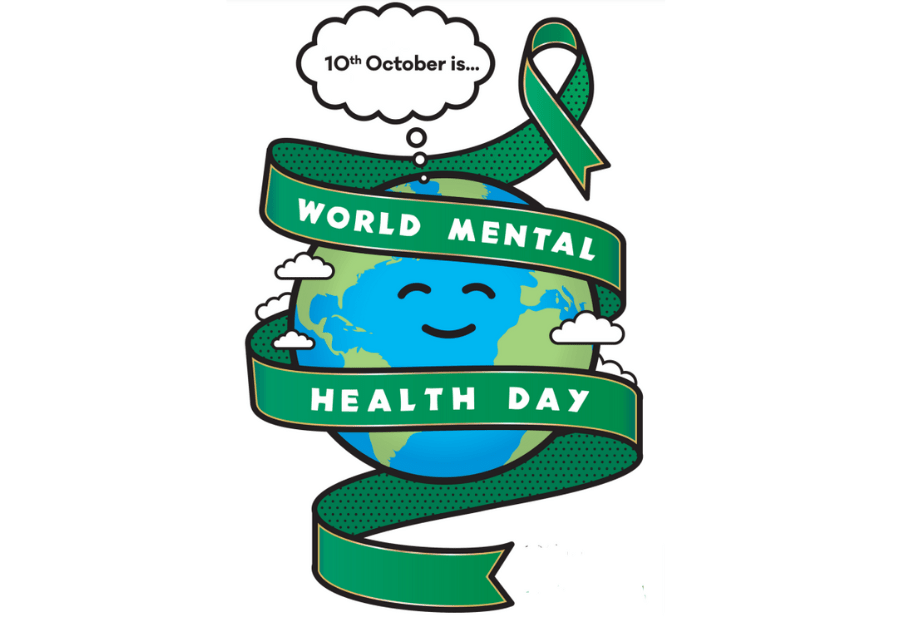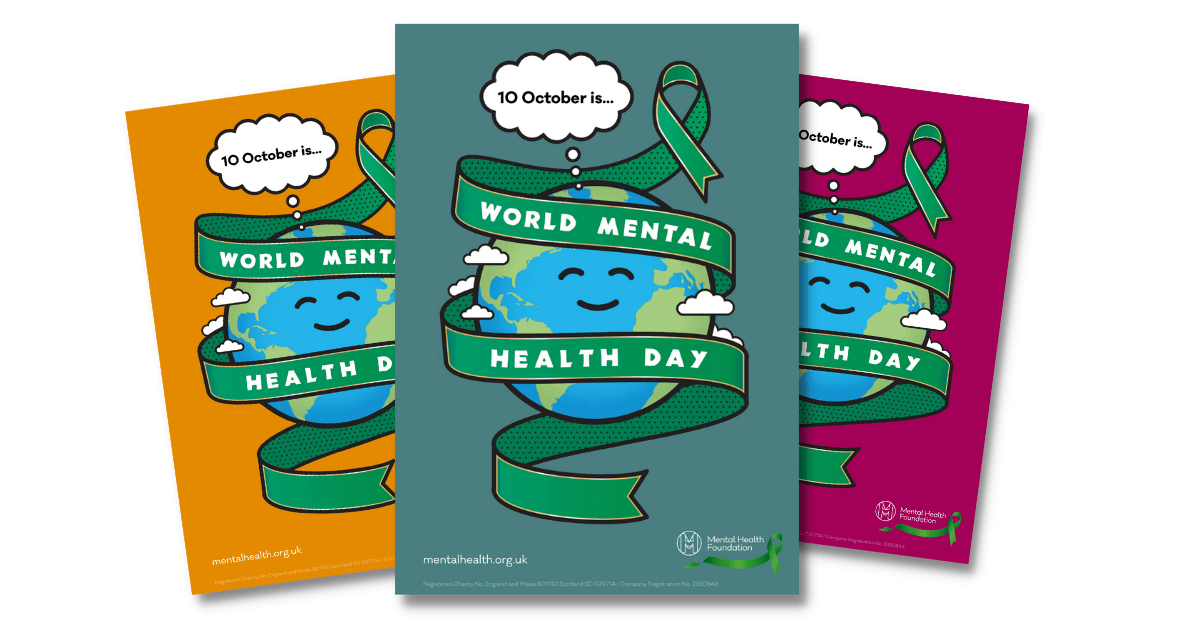World Mental Health Day (10 Oct) is a day to talk about mental health and show everyone that mental health matters. It’s also a day to let people know that it’s okay to ask for help, no matter what you’re going through.
As the theme of World Mental Health Day highlights, ‘mental health is a universal human right’. That’s why at Mental Health Foundation, we’re dedicated to addressing the inequalities in mental health and working towards good mental health for all, not just for some. Read more below.
This year, over 260,000 people have had a Tea & Talk for World Mental Health Day - raising vital funds for mental health! Every donation supports our life-changing work and brings us closer to a world with good mental health for all.

Celebrating World Mental Health Day
On World Mental Health Day, people all over the world get involved by raising awareness of mental health. This year, Mental Health Foundation has helped thousands of people to speak up about mental health through Tea & Talk events being held across the UK.
Over 260,000
people are having a Tea & Talk about mental health for World Mental Health Day.
Over 7,000
Tea & Talk events are being hosted across the UK for World Mental Health Day.
Show your support
Every donation supports our life-changing work and brings us closer to a world with good mental health for all.
Fundraising from Tea & Talk

Share on social media, at work, or in your community
Join us in raising awareness about mental health on social media by following us on Instagram, Facebook, Twitter or LinkedIn. Download images to share on social media or a poster to print:
- Download a poster
- Download a poster (Welsh version)
- Download an Instagram post
- Download an Instagram post (Welsh version)
- Download a Twitter post
- Download a Twitter post (Welsh version)
Whether you wore your green ribbon to show your support, held a Tea & Talk, or got involved another way – we want to hear from you!
Share a photo of what you’ve been up to on Instagram and tag us at @mentalhealthfoundation.

Mental health is a universal human right
We know that mental health is a universal human right. But despite this, some groups face more barriers to good mental health than others.
2-3x
More likely for children and adults in the lowest income bracket to develop mental health problems than in the highest. [1]
5x
More likely for asylum seekers to have mental health needs than the general population. [2]
38%
Of people with severe symptoms of mental health problems also have long-term physical conditions. [3]
Inequalities in mental health lead to certain groups facing disproportionately higher rates of mental health issues.
This needs to be urgently addressed. And that’s why we focus our research, policy & advocacy work, and programmes on the groups most affected. This includes families, young people, people with long-term health conditions, and refugees and asylum seekers.
We drive change towards a mentally healthy society for all, and support communities, families and individuals to live mentally healthier lives.
With prevention at the heart of what we do, we aim to find and address the sources of mental health problems so that people and communities can thrive.
Looking after your mental health
Talking is good for your mental health. And talking about mental health is important. But starting a conversation isn’t always easy. Whether you’d like to talk to someone about how you’re feeling, or check-in with someone you care about, here are some tips that can help.
1. Choose someone you trust to talk to
This might be a friend, family member or a colleague. Or you might be more comfortable talking to someone you don’t know, for example, through a support helpline. It can help to do a pros and cons list about talking to someone.
2. Think about the best place to talk
It’s important to choose a place where you feel comfortable enough to open-up. You might want to choose somewhere private where you’re less likely to be disturbed. You also might want to talk while you do an activity, like walking together.
3. Prepare yourself for their reaction
Hopefully, you will have a good experience when you open-up to someone. But there’s a chance that they may not react in the way you hope. This may be for different reasons, like they may be worried or not fully understand at first. If that’s the case, try to give them time to process what you’ve told them. It might help to give them information to read to help them understand. And don’t forget to be kind to yourself and practise self-care.
1. Find a good space to talk without distractions
If you’re worried about someone, try to find a place where you know you can have a conversation without being distracted. Make sure to give them your full attention. It might help to switch off your phone.
2. Listen and ask questions
Listening can be one of the most valuable ways to be there for someone. Show them that you’re actively listening by facing them, making eye contact, and not interrupting. Questions can help you clarify what they mean and also show that you’re actively listening. But make sure the questions are relevant to what they’re saying, and not changing the subject.
3. Ask how you can help
Ask how you can help or make suggestions, rather than telling them what to do next. They might want support with making a GP appointment, help around the house, or just for you to keep things normal and chat about what’s going on in your life.
Get help

References
- Marmot, M., Allen, J., Goldblatt, P., Boyce, T., McNeish, D., Grady, M., & Geddes, I. (2010). Fair society, healthy lives: Strategic review of health inequalities in England post 2010. Retrieved from instituteofhealthequity.org/projects/ fair-society-healthy-lives-the-marmot-review [Accessed 07/11/16].
- Eaton, V., Ward, C., Womack, J., & Taylor, A. (2011). Mental Health and Wellbeing in Leeds: An Assessment of Need in the Adult Population. NHS Leeds.
- Raj, D., Stansfeld, S., Weich, S., Stewart, R., McBride, O., Brugha, T., … & Papp, M. (2016). Chapter 13: Comorbidity in mental and physical illness. In S. McManus, P. Bebbington, R. Jenkins, & T. Brugha (Eds.), Mental health and wellbeing in England: Adult Psychiatric Morbidity Survey 2014. Leeds: NHS Digital.

